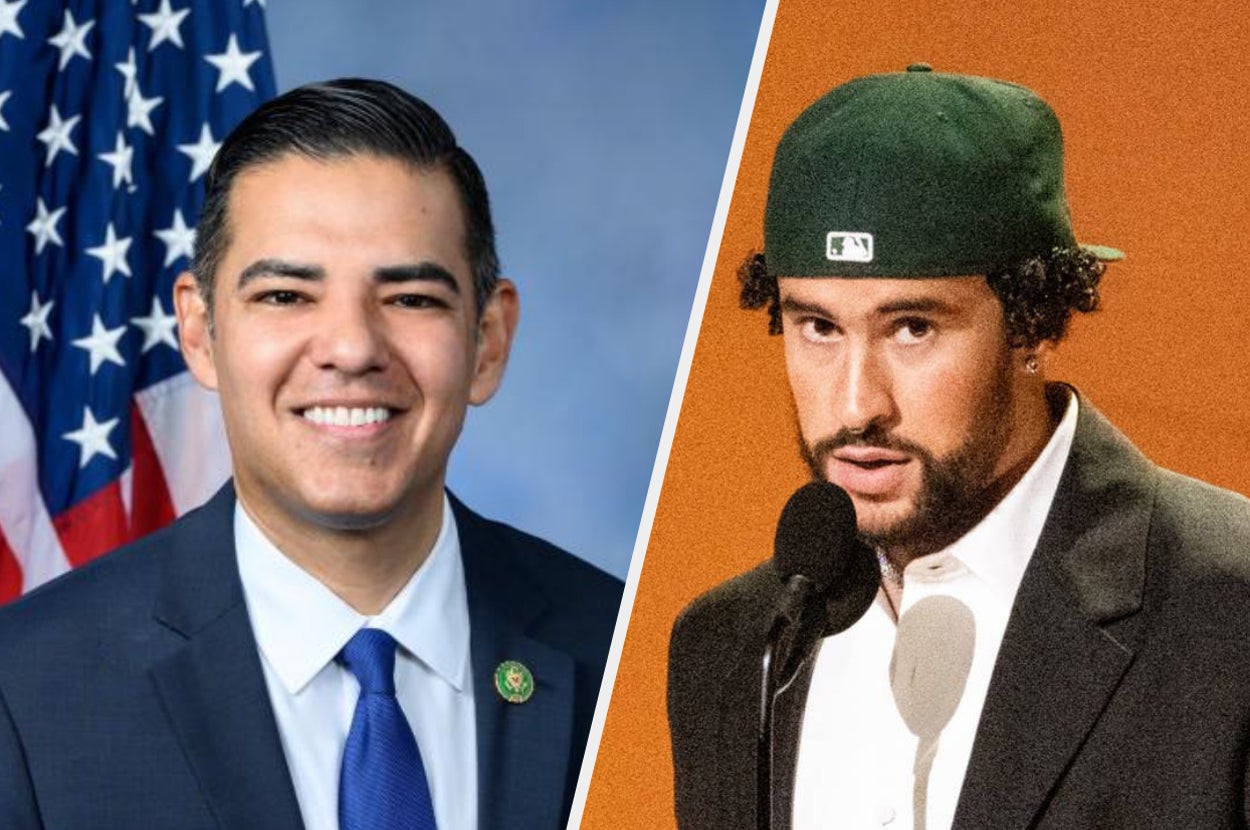In a recent turn of events, Representative Robert Garcia expressed significant disappointment regarding the handling of closed captioning by CBS during the Grammy Awards broadcast, particularly pertaining to the performance and acceptance speech by international music sensation, Bad Bunny. During the ceremony, the Spanish-language performances and speech were captioned with generic placeholders such as “[SINGING NON-ENGLISH]” and “[SPEAKING NON-ENGLISH],” a method that has stirred conversation and criticism about language inclusivity in major media broadcasts.
Bad Bunny, a major figure in Latin music, kicked off the Grammy Awards with an energetic performance featuring a mashup of his popular songs “El Apagón” and “Después de la Playa” from his record-breaking album, Un Verano Sin Ti. The album itself has made significant waves in the music industry, clinching the award for Best Música Urbana Album at the ceremony. The prominent artist, singing predominantly in Spanish, provided a vibrant testament to the richness of Latino culture and music. However, the subsequent treatment of his Spanish speech during the captions revealed a discomforting oversight.
This issue of non-inclusive captioning practices came under scrutiny when Rep. Garcia, a California Democrat, made his feelings known publicly by addressing a poignant letter to CBS Entertainment President and CEO, George Cheeks. In his correspondence, which was initially highlighted by Variety, Garcia urged CBS to recognize and rectify the underlying causes that led to what he termed as “failures” in properly broadcasting Spanish language content during such a high-profile event.
Expanding on the matter, Rep. Garcia communicated his points more vigorously to various news outlets, including BuzzFeed News. He emphasized that the lack of proper Spanish-language captioning was not merely a technical oversight but a broader issue of respect and equality. Pointing out the irony, Garcia highlighted that while millions of Spanish speakers reside in the U.S., their language seems to be treated as secondary by major media corporations like CBS.
Furthermore, Garcia elucidated on the broader implications of the captioning approach taken by CBS, defining it as symptomatic of a larger issue facing Spanish-speaking Americans—a lack of equal consideration and respect from mainstream media. He criticized the network for its failure to provide adequate language support, particularly during a broadcast attracting a significant portion of Hispanic viewers, who anticipated seeing one of their iconic cultural figures perform.
The case of the Grammy Awards and Bad Bunny’s performance underlines ongoing discussions about media inclusiveness and equal representation. Although CBS followed what is described as an “industry standard” in the U.S. by using English captions and marking other languages simplistically as “non-English,” this incident has sparked discussions on whether these standards are sufficient or respectful towards the linguistic diversity in the country.
As this subject continues to develop, it prompts a broader inquiry into how media outlets can better serve a linguistically diverse audience. The essence of the issue lies in whether a shift in industry standards is required to foster a more inclusive approach to language in media, promoting an environment where no language or cultural expression is sidelined on major platforms.
In conclusion, Rep. Garcia’s actions reflect a growing demand for media practices that not only acknowledge but celebrate and respect the rich tapestry of languages spoken by the American population. His call to action against CBS’s captioning practices during the Grammys opens up further dialogue on how major networks can improve their inclusivity measures to ensure that all Americans, regardless of their primary language, feel valued and respected in media representations. Moving forward, it will be critical for media companies to reassess their approaches to language portrayal, potentially setting new precedents that could shape the future of broadcasting in a multicultural and multilingual society. This incident serves as a reminder of the ongoing challenges and opportunities that lie in the path toward more inclusive and equitable media practices.









